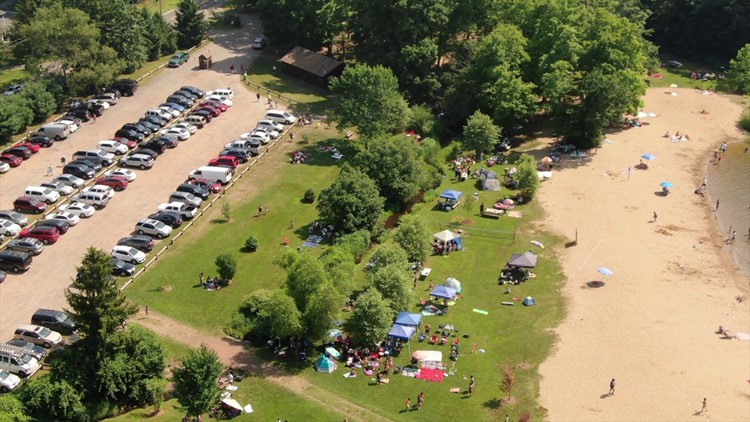HARTFORD — Hundreds of thousands more people are visiting state beaches and parks, due in part to a two-year-old program that provides free admittance for vehicles with a Connecticut license plate.
Rough estimates indicate there has been an approximate 10% percent increase in traffic to the parks this season compared to last season, which was the first year of the Passport to Parks initiative, said Tom Tyler, director of state parks for the Department of Energy and Environmental Protection.
There was an estimated 10% jump in attendance in 2018 as well. Approximately 10 million visitors come to Connecticut state parks each year.
“We are seeing another very strong year,” said Tyler, noting there were “a ton of really hot, humid, sunny weekends” that likely contributed to the uptick as well. Tyler said there was also in increase in out-of-state parking fees of about 10%, which likely had a lot to do with the good beach weather.
Connecticut lawmakers in 2017 passed legislation creating the Passport to Parks initiative. It came after years of budget cutbacks that ultimately led to shuttered campgrounds and staffing reductions. The goal of the program was to create a dedicated funding stream to fund park operations. The money is generated from a $10 fee on motor vehicle registrations. In return, residents with valid state license plates can access all state parks in Connecticut for free.
A spokesman for the Office of Policy and Management said state budget officials anticipate the fee will generate approximately $16 million annually. The bulk of the money generated is directed to the parks to help cover the cost of seasonal workers and operational expenses, including garbage pickup, rest rooms and utilities.
Funds also are used to provide grants to water and soil conservation districts and expenses of the Council on Environmental Quality, which monitors the condition of the state’s environment. While lawmakers in 2019 siphoned about $5 million for other uses, Tyler said the funding was left mostly intact this year.
The influx of cash has allowed DEEP to reverse all the operational reductions the agency made in 2016 and 2017, including reopening campgrounds and resuming “shoulder season” operations at some campgrounds in the spring and fall.
Eric Hammerling, executive director of the Connecticut Forest and Park Association, a nonprofit advocacy group that urged state lawmakers to pass the Passport to Parks program, said the program appears to be changing the way people are using the state’s public lands.
“Before the Passport to Parks, when people paid $13 at the gate for one visit to a shoreline park like Hammonasset Beach State Park, they stayed as long as they could to get their money’s worth,” he said. “Since the fee at the gate was waived for Connecticut residents … people generally aren’t staying as long, and this frees up parking spaces for additional visitors.”
Hammerling said the state park beaches may be filling up faster, but there’s more turnover of visitors.
“It really is a win-win for the public,” he said.
The busy season at many parks will be wrapping up this weekend. The last of this season’s lifeguards will be wrapping it up after the Labor Day holiday, as well as many ticket booths, depending on locations. Ticket booths will remain open at the larger beach parks through September. Activity at some state inland parks is expected to start ramping up.



